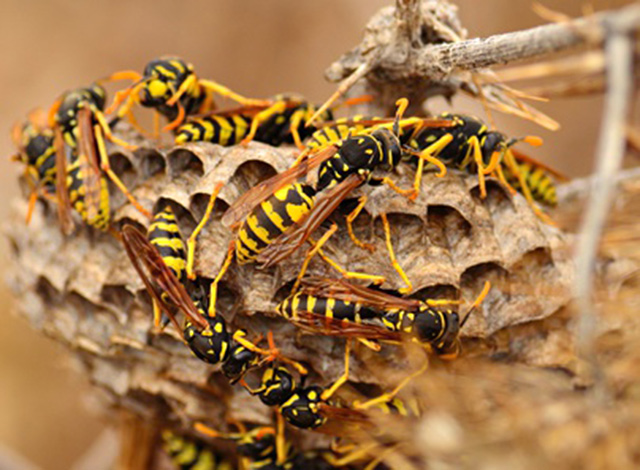The social wasp Polybia paulista defends itself with venom, like many wasps and bees. New research now shows that wasp venom may kill cancer cells.
The new research from Cell Press shows that a toxin in the venom called MP1 kills cancer cells without harming normal cells. MP1 creates holes on the surface of cancer cells, allowing cell function to leak out.
“Cancer therapies that attack the lipid composition of the cell membrane would be an entirely new class of anticancer drugs,” says co-senior study author Paul Beales, of the University of Leeds in the UK. “This could be useful in developing new combination therapies, where multiple drugs are used simultaneously to treat a cancer by attacking different parts of the cancer cells at the same time.”
The antimicrobial properties of MP1 show promise in inhibiting the growth of prostate and bladder cancer cells, as well as leukemia cells. Until now, it wasn’t clear how MP1 worked to selectively kill cancer cells. Now, the researchers know that it has to do with the holes the venom creates in the cells.
“Formed in only seconds, these large pores are big enough to allow critical molecules such as RNA and proteins to easily escape cells,” Neto says. “The dramatic enhancement of the permeabilization induced by the peptide in the presence of PE and the dimensions of the pores in these membranes was surprising.”
The researchers plan to alter MP1 to learn how the structure affects the function of the venom so they can further improve its potency for clinical purposes. “Understanding the mechanism of action of this peptide will help in translational studies to further assess the potential for this peptide to be used in medicine,” Beales says. “As it has been shown to be selective to cancer cells and non-toxic to normal cells in the lab, this peptide has the potential to be safe, but further work would be required to prove that.”
The study showing that wasp venom may kill cancer cells was published in the Biophysical Journal.
Note: None of the information in our website is intended to diagnose, treat, cure or prevent any illness or disease. The content on our website is for educational purposes only.
DON’T FORGET to sign up for our weekly newsletter to get our latest articles, updates, free recipes and giveaways.
New study shows bee venom kills HIV.
Honeybee deaths surged in the last year.
Common pesticides attract bees and kill them.
REFERENCES:
1. “Brazilian Wasp Venom Kills Cancer Cells by Opening Them up.” EurekAlert! Cell Press, 1 Sept. 2015. Web. 07 Sept. 2015.
2. “PE and PS Lipids Synergistically Enhance Membrane Poration by a Peptide with Anticancer Properties.” Biophysical Journal. Biophysical Journal, 1 Sept. 2015. Web. 7 Sept. 2015.

















